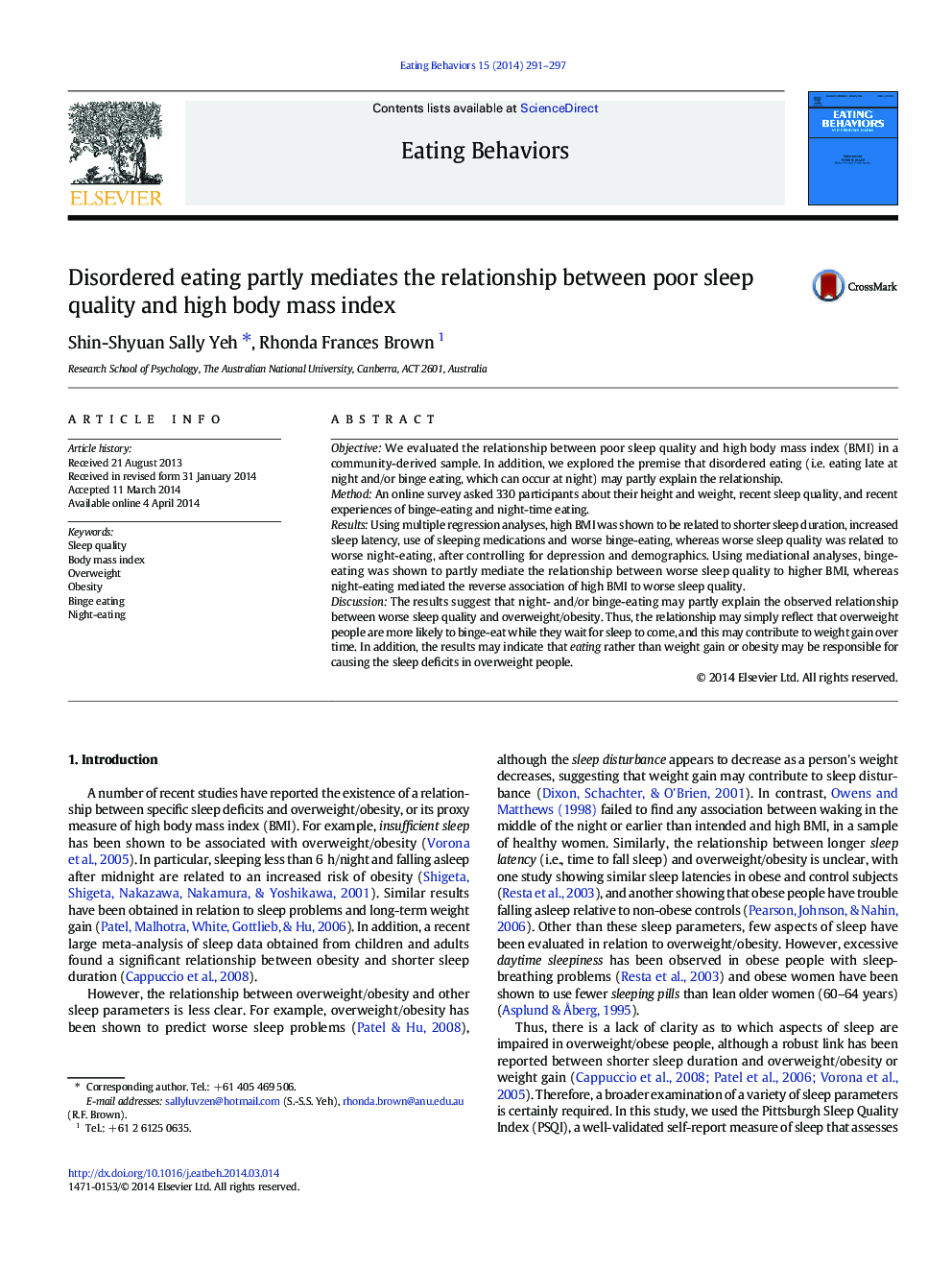| کد مقاله | کد نشریه | سال انتشار | مقاله انگلیسی | نسخه تمام متن |
|---|---|---|---|---|
| 906497 | 917007 | 2014 | 7 صفحه PDF | دانلود رایگان |
• Eating behavior was tested as mediator between poor sleep and body mass index.
• High BMI was linked to worse binge-eating.
• Worse sleep quality was linked to worse night-eating.
• Binge-eating partially mediated the worse sleep quality to high BMI relationship.
• Night-eating partially mediated the high BMI to worse sleep quality relationship.
ObjectiveWe evaluated the relationship between poor sleep quality and high body mass index (BMI) in a community-derived sample. In addition, we explored the premise that disordered eating (i.e. eating late at night and/or binge eating, which can occur at night) may partly explain the relationship.MethodAn online survey asked 330 participants about their height and weight, recent sleep quality, and recent experiences of binge-eating and night-time eating.ResultsUsing multiple regression analyses, high BMI was shown to be related to shorter sleep duration, increased sleep latency, use of sleeping medications and worse binge-eating, whereas worse sleep quality was related to worse night-eating, after controlling for depression and demographics. Using mediational analyses, binge-eating was shown to partly mediate the relationship between worse sleep quality to higher BMI, whereas night-eating mediated the reverse association of high BMI to worse sleep quality.DiscussionThe results suggest that night- and/or binge-eating may partly explain the observed relationship between worse sleep quality and overweight/obesity. Thus, the relationship may simply reflect that overweight people are more likely to binge-eat while they wait for sleep to come, and this may contribute to weight gain over time. In addition, the results may indicate that eating rather than weight gain or obesity may be responsible for causing the sleep deficits in overweight people.
Journal: Eating Behaviors - Volume 15, Issue 2, April 2014, Pages 291–297
